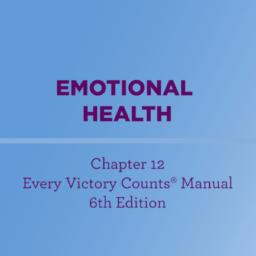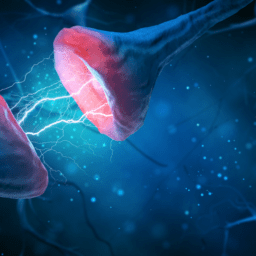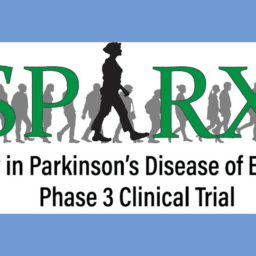“Tiny brains in a dish.” Walking to breathe easier. Sonic hedgehog, the protein. Ultrasound helmets to manage tremor. Specialized light therapy. AI and symptom management. Here’s what’s new in the world of Parkinson’s this month. Let us know if we missed anything!
PARKINSON’S ARTICLES
- A study published in a September issue of Neurology highlights how infrequently people with Parkinson’s are educated about the many walking strategies available to help them move more easily. The researchers surveyed 4,324 people with Parkinson’s and disabling gait impairments (such as imbalance, shuffling, falling, staggering, and freezing), and 35% reported that their walking difficulties impacted their ability to perform daily activities. Researchers discovered that while people with Parkinson’s often employ walking compensation strategies, most are not aware of all seven strategies that can help: internal cueing; external cueing; changing the balance requirement; altering mental state; action observation and motor imagery; adapting a new walking pattern; and other forms of using the legs, like bicycling and crawling.
- Approximately the size of a pea, “human midbrain-like organoids…grown from human stem cells into a bundle of neurons and other cells found in the brain” have been created by a research team at the Neuroscience and Behavioural Disorders Programme at Duke-NUS, which may allow scientists to more accurately study how Parkinson’s develops in humans and how to potentially slow or halt its progression.
- A joint study of the University of Bonn, the German Center for Neurodegenerative Diseases, and the Institut François Jacob in France, recently published in the journal Cell, explains a previously unknown fact: to cope with threats, immune cells in the brain can join together to form networks to break down toxic proteins more quickly. However, in certain mutations that can lead to Parkinson’s, this process is impaired. “We have opened the door to a field that will certainly engage researchers for many years to come,” one of the researchers says.
- Research recently published in the journal Brain Communications shows that one in three people with early to mid-stage Parkinson’s have difficulty learning new tasks by following instructions. The research team from London’s University of Westminster believes this finding shows the importance of instruction-based learning assessments for people with Parkinson’s.
- Using a transcriptome-wide association study approach, researchers at the Hunan University of Chinese Medicine in China analyzed data from 15,056 people with Parkinson’s and 449,056 people without Parkinson’s, as well as 18,618 individuals who do not have Parkinson’s but have a first-degree relative who does, and have identified 18 genes associated with Parkinson’s. They also identified eight “conditionally independent” genes and demonstrated that several of the genome-wide association study significant signals on Parkinson’s could be driven by genetically regulated gene expression. Their findings are expected to further research on how these specific genes may lead to Parkinson’s.
- An FDA-approved incisionless thalamotomy procedure that uses focused ultrasound energy guided by magnetic resonance imaging (MRI) can help minimize tremor in people with Parkinson’s. The procedure, which typically takes two to three hours, relies on MRI to target the location in the brain responsible for the tremor; then an ultrasound helmet sends more than a thousand beams of energy through the skull to thermally ablate the area without damaging any nearby brain tissue.
- In the Journal of Biological Chemistry, scientists from University of Utah Health explain how they have identified a molecule, known as A-443654, that slows cells’ production of alpha-synuclein, a protein that forms toxic aggregates in the brains of people with Parkinson’s. They hope this discovery leads to new strategies for treating and potentially stopping the progression of Parkinson’s.
- Also investigating alpha-synuclein and Parkinson’s, researchers at Rush University Medical Center have shown success in slowing Parkinson’s progression in mice using two different peptides (chains of amino acids) that helped slow the spread of alpha-synuclein. The lab-developed peptides, delivered through the noses of the mice, slowed inflammation in the brain and stopped the spread of alpha-synuclein, while also improving the mice’s gait, balance, and other motor functions.
- A September U.S. News & World Report article highlights the mounting evidence that links pesticides to Parkinson’s.
- In other pesticides-and-Parkinson’s news, in late September farmworker groups, environmentalists, and health organizations represented by Earthjustice sued the Environmental Protection Agency (EPA) for approving the continued use of paraquat, one of the most widely used herbicides in the US and one that has been linked to Parkinson’s. Although paraquat is currently banned in 32 countries, in July the EPA reapproved the pesticide’s registration for another 15 years.
- A study recently published in npj Digital Medicine says a new tool that relies on techniques from computer vision and machine learning is able to distinguish people with Parkinson’s from those without Parkinson’s by looking at short videos of facial expressions, with an accuracy of 95.6%.
- Apple Watches and iPhones, too, have been proven effective, via the WATCH-PD study, at differentiating between people with early, untreated Parkinson’s and people without Parkinson’s.
- In a study recently published in the medical journal Frontiers in Neurology, the Samsung Galaxy Watch’s blood pressure monitoring system was found beneficial in helping people with Parkinson’s manage orthostatic hypotension, a common Parkinson’s symptom.
-
Sinopia Biosciences has been awarded a $3.3 million Fast-Track SBIR grant from the National Institutes of Health (NIH) to fund investigational new drug-enabling studies for their small molecule candidate for Parkinson’s. In multiple preclinical rodent and non-human primate studies, Sinopia’s drug candidate showed efficacy in treating both the symptoms of Parkinson’s and complications of levodopa, such as dyskinesia.
PARKINSON’S treatments and THERAPIES
- Results from a small study suggest that incorporating a walking program into a Parkinson’s exercise routine may augment the benefits of respiratory muscle training, helping people with Parkinson’s breathe easier.
- In a study published in Communications Biology, researchers at the Graduate Center, CUNY, and the CUNY School of Medicine suggest that drugs that increase signaling by a protein called sonic hedgehog, or Shh, can reduce levodopa-induced dyskinesia. With this discovery, the team hope to develop new therapeutics that act downstream in the Shh pathway in cholinergic neurons, then begin clinical trials.
- Findings presented in five posters at the International Parkinson and Movement Disorder Society Virtual Congress in September 2021 showed that the medication GOCOVRI was more effective than other therapies in reducing OFF periods and dyskinesia in people with Parkinson’s.
- Another study presented at the International Congress of Parkinson’s Disease and Movement Disorders Virtual Congress 2021 found that people with Parkinson’s who begin taking levodopa within two years of diagnosis may have earlier onset of motor fluctuations, regardless of how long they have lived with Parkinson’s.
- And another study presented at the International Congress of Parkinson’s Disease and Movement Disorders Virtual Congress 2021, a prospective, double-blind, multicenter, controlled study that included 92 participants, suggests that specialized light therapy may improve mood disorders, urinary problems, swallowing and chewing, tremor, daytime sleepiness, and fatigue in people with Parkinson’s.
- A grant from The Silverstein Foundation for Parkinson’s with GBA will allow AcureX Therapeutics to advance the development of small molecule drug candidates that center around a specific protein, Miro1, in mitochondria. AcureX hopes to begin clinical trials on one or more of these drug candidates by late 2023.
- Topline results from a study investigating two lead structurally targeted allosteric regulator (STAR) compounds show promise for the treatment of Gaucher disease and GBA1-associated Parkinson’s by “guiding misfolded forms of the GCase enzyme to their proper shape and restoring enzymatic activity.”
- Findings published in the Journal of Personalized Medicine indicate that safinamide may significantly improve Parkinson’s-related pain. Safinamide is an oral alpha-aminoamide derivative that has been associated with improvements in several pain scales at helping treat non-motor symptoms, particularly sleep, mood, and urinary symptoms.
- With $8 million in funding from Erik Selin Fastigheter AB, Intrance Medical Systems Inc., will begin a US clinical development program for its fixed-dose combination treatment of carbidopa, entacapone, and levodopa for enteral infusion in people with advanced Parkinson’s. The product is currently branded as Lecigon® in the Nordic countries and certain European markets.
- Results were disappointing in a trial that had hoped to show that the natural antioxidant urate could delay the progression of Parkinson’s. The study, published in the Journal of the American Medical Association and completed at Massachusetts General Hospital, enrolled almost 300 people recently diagnosed with early Parkinson’s and found no significant difference in the rate of progression for participants given the metabolite inosine for two years compared to the placebo group.
- A study of immune cells derived from human stem cells published in the Proceedings of the National Academy of Sciences highlights how some investigational antibodies for Alzheimer’s and Parkinson’s can lead to harmful neuroinflammation. Researchers found that experimental antibodies that target the accumulation of beta-amyloid and alpha-synuclein triggered an inflammatory response in the brain’s immune cells. This response led to heightened inflammation, injured neurons, and, eventually, neuronal death.
- Pharma Two B announced in September that its multinational Phase III study of P2B001 in early Parkinson’s has been completed. The trial investigated the effectiveness of P2B001, a once-daily pill made with a combination of low-dose pramipexole and rasagiline. Top line results from the study are expected by the end of 2021.
- One of several trials taking place in the UK to investigate the efficacy of cannabis in treating Parkinson’s symptoms is a study at King’s College Hospital in London, where researchers are exploring whether CBD can treat Parkinson’s-related hallucinations.
PARKINSON’S LIVING WELL STORIES
- A September feature in Yahoo!Life shared advice from several Davis Phinney Foundation Ambassadors about tools to make cooking with Parkinson’s easier.
- When her father-in-law and first US-based physical therapy client were both diagnosed with Parkinson’s, Isabell Senft-Daniel founded PJ Parkinson’s, a small nonprofit in Tennessee that hosts exercise classes, support groups, fundraising events, and other activities for people living with Parkinson’s.
- In a 330-mile bike ride from the National Mall in Washington, D.C., to Point State Park, 10 riders (including three who are living with Parkinson’s) raised more than $30,000 to support and enhance current exercise programs offered by the Parkinson’s Foundation of Western Pennsylvania and to fund future programming.
- In another cycling for Parkinson’s story, two friends in Canada share how recumbent biking helps them live well. “I guess really the best way to [describe the feeling] would be ‘energized,” one of them says. “It really fills me up with energy when I see my friend is happy, just enjoying the thrill.”
- And, in another living-well-through-exercise story, people with Parkinson’s who take part in a boxing class in Vermont describe its positive impacts on their quality of life. “It’s giving me a lot more self-confidence and let me see that I can accomplish things that I didn’t think I could,” one member says.
PARKINSON’S SURVEYS, CLINICAL TRIALS, and volunteer opportunities
Genetic Counseling Training Program Research – If you have a diagnosis of Parkinson’s, you are invited to participate in a research study led by Sydney Richards, a master’s student in the Genetic Counseling Training Program at the University of Maryland School of Medicine. Sydney is conducting a new research study to better understand the experience of individuals with Parkinson’s with genetic testing. The study includes a short, online survey that should only take about 15 minutes to complete. All answers are anonymous. This study is voluntary, and your decision to participate will not affect your medical care. If you are interested in learning more about this study, click here. Responses will be accepted until November 16, 2021.
SPARX3 – A Phase 3 Clinical Trial about Exercise and Parkinson’s – This research team is currently seeking volunteers to participate in a clinical trial about the effects of aerobic exercise on people with Parkinson’s. Learn more and see if you qualify here. For more details, contact Katherine Balfany at [email protected].
Do you have early-stage Parkinson’s? The Orchestra Study is a clinical research study to evaluate the use of an investigational medication called UCB0599 in men and women with early-stage Parkinson’s. You can learn more and see if you qualify here.
PAIRing Up – If you are a person with Parkinson’s or a care partner to someone with Parkinson’s, you are invited to participate in an online survey to address neuropsychiatric (cognition, depression, anxiety) concerns in Parkinson’s. The survey aims to learn about the needs and priorities for clinical care, education, support, and research related to neuropsychiatric symptoms. To learn more and participate, click here to download the flyer.
A multidisciplinary research team in the UK is investigating how to best use music to help people with Parkinson’s manage symptoms related to movement and mood. This includes research about music for dancing and is the first study to incorporate the new Dance Sophistication Index for people with Parkinson’s. To learn more and take a 30-minute survey, click here.
The University of Oulu and collaborators from Aalborg University, Fraunhofer University, the University of Manchester, the University of Glasgow, the University of Lisbon, and the University of Melbourne, are conducting a survey for people with Parkinson’s and Parkinson’s care partners about self-care. Complete the survey here to share your self-care strategies and techniques. You can also review ideas submitted by others and add them to your own self-care toolbox.
BouNDless – Phase 3 trial to investigate the efficacy, safety, and tolerability of ND0612, a continuous subcutaneous levodopa/carbidopa delivery system in comparison to oral levodopa/carbidopa in people with Parkinson’s experiencing motor fluctuations
Parkinson’s Progression Markers Initiative (PPMI) Screen Survey – The Michael J. Fox Foundation
Home-based Exercise and Cognitive Behavior Therapy – University of Alabama in Huntsville
Speech and Telemedicine Study – The Purdue Motor Speech Lab
Parkinson’s and Service Dogs – University of Groningen, Netherlands
Neurology Study Interest Registry – University of Rochester
Park Test – University of Rochester
Project Euphonia – LSVT Global and Project Euphonia
For more of what’s new in Parkinson’s news, check out our full series here.
WANT MORE PRACTICAL ARTICLES LIKE THIS?
You can find much more in our Every Victory Counts® manual. It’s packed with up-to-date information about everything Parkinson’s, plus an expanded worksheets and resources section to help you put what you’ve learned into action. Request your free copy of the Every Victory Counts manual by clicking the button below.
Thank you to our 2021 Peak Partners, Adamas, Amneal, Kyowa Kirin, and Sunovion, as well as our Every Victory Counts Gold Sponsor AbbVie Grants, Silver Sponsor Lundbeck, and Bronze Sponsors Supernus and Theravance for helping us provide the Every Victory Counts manual to our community for free.
















